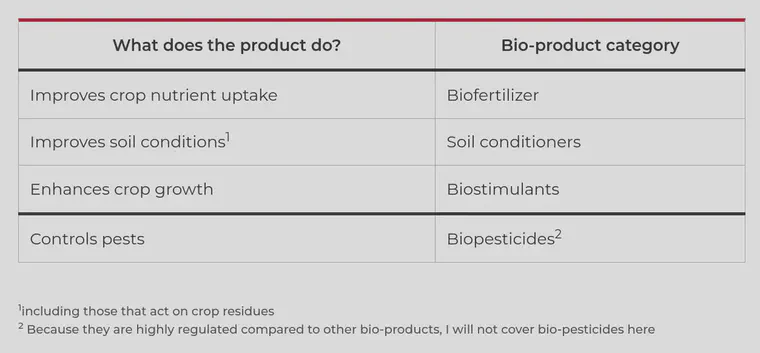Biofertilizers, soil conditioners, and biostimulants
Andrew McGuire, an agronomist with Washington State University, wrote that bio-products are “risky because decades of experience and research have found these products fail, or fail inconsistently, or have small benefits that don’t cover their cost.” That’s in this blog post: Soil Bio-Products are Risky; Ask Questions. He starts by classifying what the product does (or is intended to do), and matches that to a specific bio-product category, as shown in this table from the blog post.

McGuire goes on to recommend the questions to ask about these products, including:
- What’s in it?
- Does your soil lack what the product provides?
- How does it work?
- Is the mechanism plausible?
Then he goes through examples of those questions applied to biofertilizers, soil conditioners, and biostimulants. He concludes with this:
If you have used recommended practices to obtain a healthy soil, then the benefits of a successful bio-product are likely to be small. Even with reasonable answers to all these questions, even if you do everything else right (planting, nutrient, pest management etc.), the usual bio-product benefit, when it occurs, is a 5% bump, or less. A 10% increase/boost/advantage over your normal practice would be remarkable.
See the Related Posts below for more about this topic. I also recommend McGuire’s blog post Choose Soil-building Practices Over Soil Health Products.